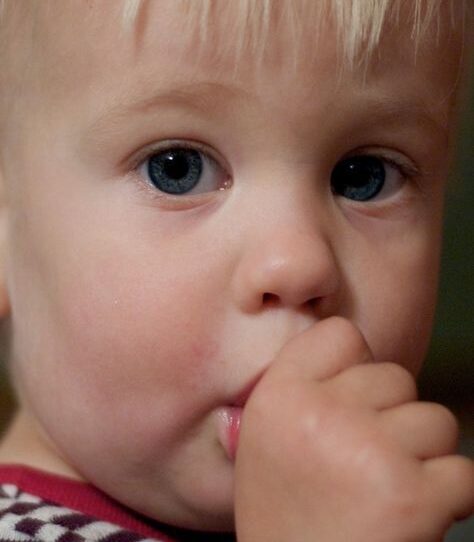Ah, you’re referring to thumb sucking in kids, which is a common habit, especially in young children.

Why Do Kids Suck Their Thumbs?
Self-soothing: Thumb sucking is a natural reflex for babies. It helps them feel secure and calm.
Comfort: It can serve as a coping mechanism when they are tired, stressed, or bored.
Hunger: For infants, it can be a sign of hunger.
When Does It Become a Concern?
Thumb sucking is usually harmless in infants and toddlers. However, it can cause issues if it continues beyond the age of 4-5 years:
Dental problems: Prolonged thumb sucking can affect the alignment of teeth and the shape of the jaw.
Speech issues: It might interfere with tongue placement, leading to speech difficulties.
Skin problems: Prolonged sucking can cause irritation or calluses on the thumb.
How to Help a Child Stop Thumb Sucking
Positive reinforcement: Praise your child when they don’t suck their thumb.
How to Help a Child Stop Thumb Sucking
Positive reinforcement: Praise your child when they don’t suck their thumb.
Identify triggers: Pay attention to when and why they do it (e.g., stress, boredom) and address those situations.
Offer alternatives: Provide a comforting item like a stuffed toy or blanket.
Use reminders: Gentle reminders can help older children become aware of the habit.
Talk to them: Explain in simple terms why stopping the habit is important.
When to Seek Help
If thumb sucking persists and affects the child’s teeth or behavior, consult:
A pediatric dentist to address dental concerns.
A pediatrician for advice and support.


